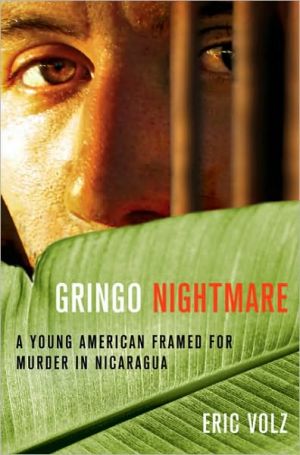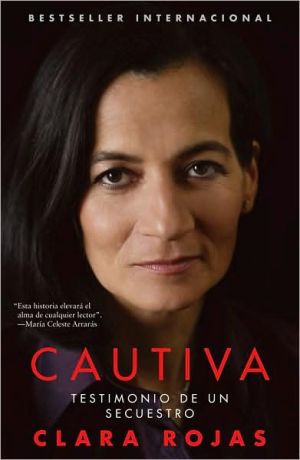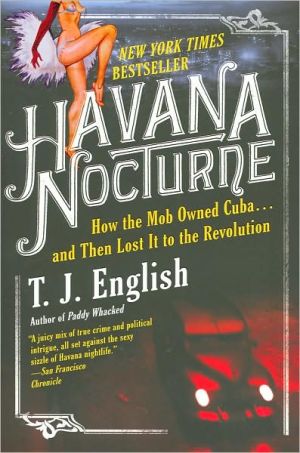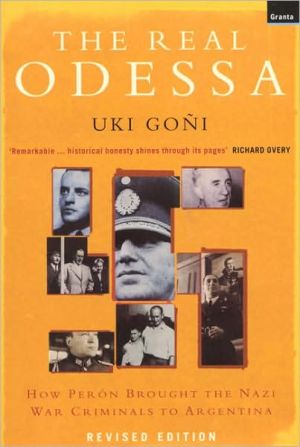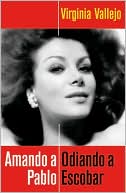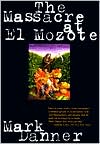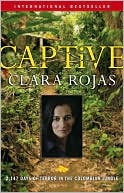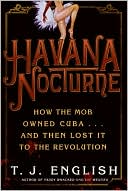Dead Man in Paradise: Unraveling a Murder from a Time of Revolution
The award-winning story of a nephew's search for the truth behind his uncle's murder— described by CBC radio as "equal parts Ian Rankin, Jan Morris and Joan Didion."\ \ At nightfall on June 22, 1965, amid the turmoil of the Dominican revolution and U.S. military occupation, a soldier emerged from the outskirts of a small town to report that he had just shot and killed two policemen and an outspoken Catholic priest. It's the opening scene in a mystery that, forty years later, compels writer...
Search in google:
The award-winning story of a nephew's search for the truth behind his uncle's murder— described by CBC radio as "equal parts Ian Rankin, Jan Morris and Joan Didion."At nightfall on June 22, 1965, amid the turmoil of the Dominican revolution and U.S. military occupation, a soldier emerged from the outskirts of a small town to report that he had just shot and killed two policemen and an outspoken Catholic priest. It's the opening scene in a mystery that, forty years later, compels writer J.B. MacKinnon— the priest's nephew, born five years after the incident—to visit the island nation for himself. Beginning with scant official information, he embarks on a chilling investigation of what many believe was a carefully plotted assassination—and on a search for the uncle he never knew.Winner of Canada's highest award for literary nonfiction, Dead Man in Paradise takes MacKinnon to corners of the country far from the Caribbean paradise seen by millions of tourists; he meets with former revolutionaries and shadowy generals from the era of dictatorship, family members of the slain policemen, and struggling Dominicans for whom the dead priest is a martyr, perhaps even a saint. Along the way, he uncovers a story inseparable from the brutal history of the New World, from the fallout of American invasion, and from the pure longing for social justice that once touched a generation. Part memoir, part travelogue, part mystery thriller, Dead Man in Paradise is "a testament to the enduring virtues of literary journalism" (The Georgia Straight). Publishers Weekly In the Dominican Republic, in the summer of 1965, when a popular rebellion triggered civil war and intervention by American troops, the author's uncle Arthur, a Canadian priest, was killed along with two policemen under suspicious circumstances. In this engrossing investigation, journalist MacKinnon (coauthor of Plenty), winner of three National Magazine Awards, searches for the truth behind his uncle's death and the dark legacy of dictatorship and poverty that it symbolizes. The story is something of a picaresque through the modern Dominican Republic. The author encounters a Kafkaesque bureaucracy, tight-lipped generals brooding over past crimes, and a populace fearful of the police and of outsiders asking questions; as he wanders about looking for witnesses, he gets lost in a maze of rural hamlets that are all named Los Jobillos. The official line that Father Art was accidentally shot while speeding through a checkpoint becomes increasingly dubious, and other possibilities arise: that he was collateral damage in a fight over a woman or, more probably, assassinated for speaking out against repression and poverty. Through MacKinnon's novelistic treatment, this intriguing mystery unfolds into a haunting portrait of a rich land marked by grotesque squalor, brutal inequality and an abiding thirst for social justice. (Oct.)Copyright 2007 Reed Business Information
\ Publishers WeeklyIn the Dominican Republic, in the summer of 1965, when a popular rebellion triggered civil war and intervention by American troops, the author's uncle Arthur, a Canadian priest, was killed along with two policemen under suspicious circumstances. In this engrossing investigation, journalist MacKinnon (coauthor of Plenty), winner of three National Magazine Awards, searches for the truth behind his uncle's death and the dark legacy of dictatorship and poverty that it symbolizes. The story is something of a picaresque through the modern Dominican Republic. The author encounters a Kafkaesque bureaucracy, tight-lipped generals brooding over past crimes, and a populace fearful of the police and of outsiders asking questions; as he wanders about looking for witnesses, he gets lost in a maze of rural hamlets that are all named Los Jobillos. The official line that Father Art was accidentally shot while speeding through a checkpoint becomes increasingly dubious, and other possibilities arise: that he was collateral damage in a fight over a woman or, more probably, assassinated for speaking out against repression and poverty. Through MacKinnon's novelistic treatment, this intriguing mystery unfolds into a haunting portrait of a rich land marked by grotesque squalor, brutal inequality and an abiding thirst for social justice. (Oct.)\ Copyright 2007 Reed Business Information\ \ \ \ \ Kirkus ReviewsA journalist turns detective in the case of his dead uncle, murdered during the unrest of the Dominican revolution. MacKinnon (co-author, Plenty: One Man, One Woman, and a Raucous Year of Eating Locally, 2007) delivers a deeply personal investigation into the death of his uncle, Arthur MacKinnon. Best known as "Padre Arturo," but "Father Art" to the author, the young Catholic priest disappeared into the wilds of the Dominican Republic in 1960 to preach his faith. Five years later, a young soldier named Odulio de los Santos Castillo walked into the town of Monte Plata with an improbable story of shooting the 32-year-old missionary, a second lieutenant named Evangelista Mart'nez and a constable, Ram-n Restituyo, in what was ruled a regrettable accident. Forty years later, the author traveled to this tumultuous country to reconcile the slim truths and embellished myths of his uncle's murder. Despite a few hastily written diary entries, Padre Arturo never fully emerges in the story, but in tracking down the natives that loved him, MacKinnon says much about the echoes of life and death. The voices that are present in the narrative-ribald priests, unwavering nuns, fearful bureaucrats and enigmatic, paranoid generals-are vivid and reveal the book's dichotomous nature. Those who knew the victim are elegant in voicing their obvious affection for Arthur and those puppeteers who know more than they admit expose the menacing madness of the republic's early days. As MacKinnon travels from shrine to graveyard to conduct interviews, the poetry of tragedy and an absurd humor about a crime long past come together to reveal a fascinating history. The author's conclusions are speculative at best-"It musthave happened something like that," he writes toward the end-but his journey toward some kind of truth is a moving one. MacKinnon is a fine storyteller and his crisp, imaginative writing is well-suited to this somewhat unorthodox detective story enmeshed in the secret history of the country's volatile politics. Agent: Anne McDermid/Anne McDermid and Associates Ltd.\ \

